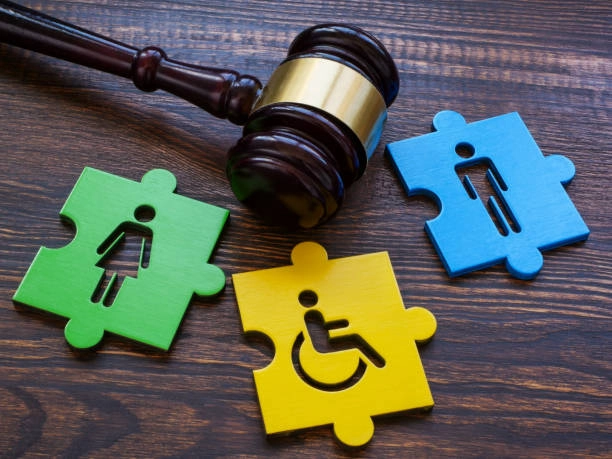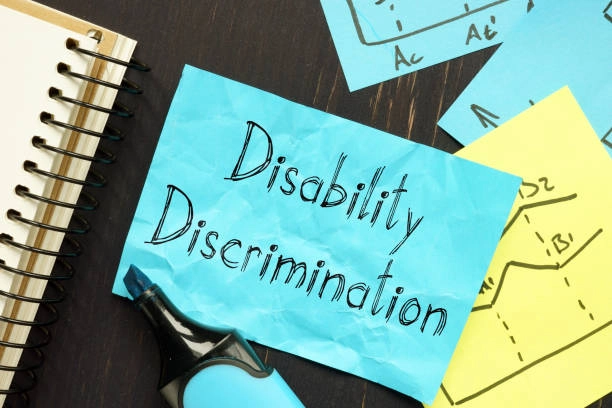Can You Sue for Workplace Disability Discrimination?

Workplace Disability Discrimination: What You Need to Know
Workplace disability discrimination occurs when individuals with physical or mental impairments face unfavorable treatment in hiring, promotions, job assignments, and termination. It can also involve denial of reasonable accommodations that enable disabled employees to perform their duties effectively. Many employees wonder: Can You Sue for Workplace Disability Discrimination? Yes, under the right conditions. To build a successful case, employees must demonstrate that:- They meet the qualifications for the job.
- Their disability falls under the protections provided by the Americans with Disabilities Act (ADA).
- Modified work schedules
- Accessible facilities
- Assistive technologies

Ready to connect with top legal professionals? Get immediate support— Call us at 877-550-8911.
Legal Basis for Suing for Workplace Disability Discrimination
Legal protections for employees with disabilities stem from both federal and state laws. The Americans with Disabilities Act (ADA) prohibits discrimination against individuals with disabilities in various aspects of public life, including employment.To establish a claim, employees must prove:
- They have a physical or mental impairment that substantially limits major life activities.
- They are qualified to perform the essential functions of their job with or without reasonable accommodations.
- Their employer failed to provide reasonable accommodations or engaged in discriminatory practices.
Steps to File a Complaint for Disability Discrimination
If you believe you have been subjected to workplace disability discrimination, taking the correct steps is crucial. Here’s how to proceed:1. Document Your Experiences
Keep a detailed record of incidents, including:- Dates and times
- Communications with supervisors or HR
- Denials of reasonable accommodations
- Witness accounts
2. Report the Issue Internally
Report the discrimination to your employer, allowing them the opportunity to address the situation. If the issue is unresolved, proceed to external measures.3. File a Complaint with the EEOC
Before filing a lawsuit, you must lodge a formal complaint with the EEOC or your state’s fair employment agency. The EEOC typically has a 180-day time limit for filing, although this may be extended in some cases.4. Receive a Right-to-Sue Letter
If the EEOC’s investigation finds sufficient evidence of discrimination, they will issue a right-to-sue letter. This document gives you the authority to initiate legal proceedings against your employer.What Evidence is Necessary for a Successful Lawsuit?
Proving workplace disability discrimination requires substantial evidence. Without sufficient proof, even valid claims can be dismissed. Employees should gather:Key Types of Evidence:
- Medical Records: Proof of a diagnosed disability that limits major life activities.
- Employer Communications: Emails, performance reviews, and internal correspondence documenting the employer’s knowledge of the disability.
- Accommodation Requests and Responses: Proof that reasonable accommodations were requested and either denied or ignored.
- Witness Testimonies: Colleagues who observed discriminatory behavior can provide valuable supporting statements.
Detailed Incident Logs
Keeping a chronological record of incidents helps establish a pattern of discrimination, making your case stronger. This evidence is essential in demonstrating the employer’s failure to comply with ADA requirements.
Potential Outcomes of a Disability Discrimination Lawsuit
When considering whether to sue for workplace disability discrimination, it is important to know the possible outcomes. A successful lawsuit can result in:1. Monetary Compensation
- Back Pay: Reimbursement for lost wages due to discriminatory termination or demotion.
- Front Pay: Compensation for future earnings if reinstatement is not possible.
- Compensatory Damages: Payment for emotional distress, pain, and suffering.
2. Reinstatement or Reasonable Accommodations
Employees may be reinstated to their previous position or provided with reasonable accommodations to continue working effectively.3. Policy Changes
In some cases, employers may be required to revise policies, implement anti-discrimination training, and establish monitoring systems to prevent future violations.Preparing for a Workplace Disability Discrimination Lawsuit
Filing a lawsuit involves careful preparation to ensure the best possible outcome. Employees should:Steps to Prepare:
- Gather Relevant Documentation: Collect performance reviews, correspondence, and medical records.
- Document Incidents: Maintain a record of discriminatory events with detailed descriptions.
- Consult an Employment Attorney: Seek guidance from an attorney specializing in employment law.
Emotional and Financial Preparation
Legal proceedings can be lengthy and emotionally taxing. Consider building a support system that includes family, friends, and mental health resources to navigate the process effectively.Role of Employment Lawyers in Disability Discrimination Cases
Employment lawyers play a vital role in disability discrimination cases. Their expertise can significantly improve your chances of a favorable outcome.How They Help:
- Evaluate Your Case: Assess the strength of your claim and determine if legal action is warranted.
- Gather Evidence: Compile medical records, witness statements, and employer communications.
- Negotiate Settlements: Negotiate with the employer to seek fair compensation and remedies.
- Represent You in Court: Advocate for your rights and pursue legal action if a settlement is not reached.
Navigating the Legal System After Experiencing Discrimination
After experiencing workplace disability discrimination, taking the right steps can make a significant difference in your case.Essential Steps:
- Document All Incidents: Record dates, times, and individuals involved.
- Report Internally: Give your employer an opportunity to address the issue.
- File with the EEOC: Follow established procedures to file a formal complaint.
- Consult Legal Counsel: Seek advice from an attorney who specializes in employment discrimination.
Resources and Support for Victims of Workplace Disability Discrimination
Numerous resources are available to support individuals who experience workplace disability discrimination. These organizations offer guidance, legal assistance, and advocacy.Recommended Resources:
- Equal Employment Opportunity Commission (EEOC): Provides information on filing complaints and understanding disability rights.
- Local Legal Aid Organizations: Many offer free consultations and legal support.
- Disability Advocacy Groups: Organizations such as the National Disability Rights Network (NDRN) provide advocacy and resources.
FAQs
1. What qualifies as workplace disability discrimination? Disability discrimination occurs when an employer treats an employee unfavorably due to a disability or fails to provide reasonable accommodations. 2. Do I need to file a complaint with the EEOC before suing? Yes, filing a complaint with the EEOC is a mandatory step before pursuing a lawsuit for workplace disability discrimination. 3. How long do I have to file a discrimination complaint? Employees typically have 180 days to file a complaint with the EEOC, though this period may be extended in some cases. 4. What evidence is most important for proving my case? Key evidence includes medical records, employer communications, accommodation requests, and witness statements. 5. Can I receive compensation for emotional distress? Yes, successful disability discrimination claims can result in compensatory damages for emotional distress and pain and suffering.Don’t wait to secure the legal representation you deserve. Visit Legal Case Review today for free quotes and tailored guidance, or call 877-550-8911 for immediate assistance.


